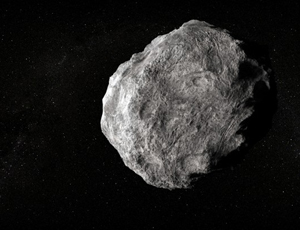 Op-ed Commentary: Dr. David A. Owen
Op-ed Commentary: Dr. David A. Owen
Feb. 19 – When is it necessary to privatize? While there is no single correct answer to this question, it is a question that China and other states grapple with almost daily.
In no industry is privatization more important than in space exploration. More specifically, mining of Near-Earth Asteroids (NEA) is projected to result in significant profit margins.
Peter Diamandis and Eric Anderson, the founders of Planetary Resources, a private enterprise focused on commercial mining on NEAs, estimate that not only would a single mining expedition to a NEA be valued in the trillions of dollars, but will also fundamentally change the global economy as we know it! This effectively increases Earth’s GDP exponentially and potentially creates a new class of wealth: the trillionaire club.
So why haven’t we already started mining these NEAs? Well, that answer is very simple and lays at the heart of the implementation of space exploration programs. These programs, in Japan, Russia, the United States (U.S.) and elsewhere, are state-controlled and suffer from the usual batch of government management problems: excessively high operational costs; little to no profit potential; excessively slow technological development compared relatively to other sectors; limited use and application of innovation; and a high degree of government management and bureaucratic red tape.
Moreover, government inadequacies are further exacerbated by the global economic downturn that has plagued much of the 21st century, making space exploration even more cost prohibitive. One consequence of this economic downturn is the U.S.’s monumental downsizing of its NASA space exploration program, specifically because of operational costs.
Collectively, these factors not only make NEA mining impractical and inefficient, but also render broader space exploration initiatives to the same fate. This should not be surprising, especially because government lacks the profit incentive and that bureaucracies are hardly ever efficient.
State management of NEA mining is simply not the future, even with the high payoff potential. Modern economic history teaches us that where the government is ineffective and a profit orientation exists, the private sector is far more effective at reducing costs, increasing profit margins, developing technology, maximizing innovation and eliminating unnecessary red tape.
Recently, Peter Diamandis and Eric Anderson demonstrated just this in their entrepreneurial solution to mining NEAs in a cost effective manner at Google’s Solve for X Moonshot project, where they unveiled their newly created mining drones to be mass produced in the near future for a few million dollars each.
These drones will be sent to NEAs to mine for precious resources and return these resources to Earth—investments in the millions, potential revenues in the trillions. NEA mining would truly become a global economic game changer!
Perhaps one could argue that space exploration should be solely state-controlled because of national security concerns, but the private sector’s role in national security in the U.S.—from identification systems to high-tech weapons manufacturing—would negate such a facile argument. Given the current economic woes, at least in the U.S., the government’s role in space will be severely limited, leaving a unique opportunity for Planetary Resources and the private sector at-large.
China has recently joined the elite space exploration club using the same state-controlled model, under its flagship China National Space Administration (CNSA). Even though the CNSA was officially formed in 1956, it was not until the past few years that China actually produced results: a successfully manned space docking in 2012 and detailed plans for a moon landing as early as 2016.
China is in a very unique position right now—that is, it has yet to incur the heavy financial tolls of state-controlled space exploration and has clear examples of the inefficiencies of other states of what not to do—as it is in the initial stages of establishing itself as a true space power. There is a large opportunity right now for China to understand that the state-controlled model is inefficient and that the private entrepreneurial base in China, which has the requisite wealth, can help the state move forward.
China can choose to follow the failed models of others, but the privatized model, as China understands all too well in other industries, is far more efficient. Given China’s ambitions to become a global power and the high stakes of NEA mining as a global economic game changer, involving the Chinese private sector in its space ambitions may be just the mix that China needs to truly become a historic power that leads globally in the 21st century.
Dr. David A. Owen completed his doctoral degree in Comparative Politics and Asian Studies and is currently a Post-Doctoral Research Fellow at Southern Illinois University. Dr. Owen is also a Contributing Analyst for the Asia Pacific Desk at WikiStrat and an instructor at the University of Maryland University College’s Asian Division.
The opinions expressed in this article are those of the author, and do not necessarily reflect the views of 2point6billion.com or Asia Briefing Ltd.



















